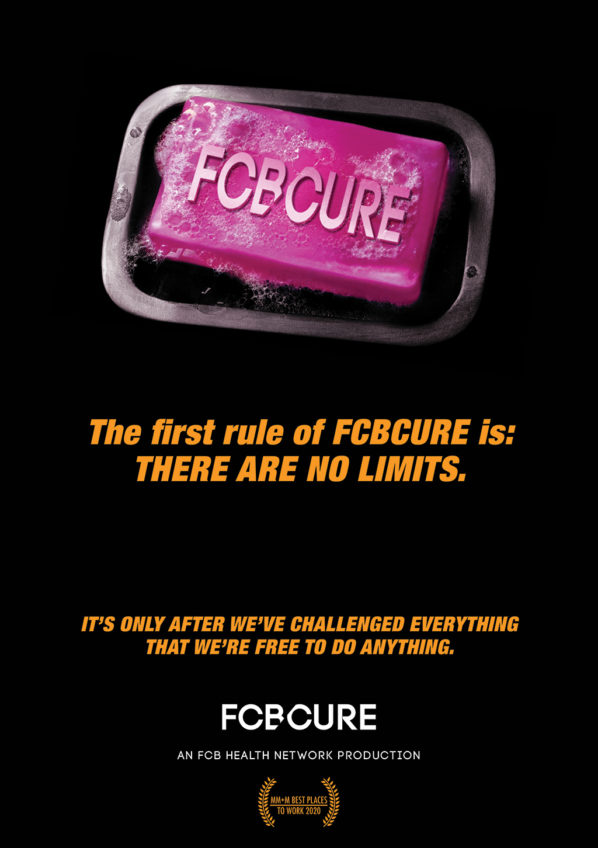Near the end of their Agency 100 profile interview, FCBCure co-managing directors Tammy Fischer and Debra Polkes issue an unprompted but urgent appeal.
“Let people know we’re hiring,” Polkes says. “All positions!”
“Yes, exactly — please,” Fischer adds with a laugh. “We are launching around the clock right now. Help us!”

While the entreaty is meant at least partly in jest, it’s borne of the palpable good spirit around the Parsippany, New Jersey-based agency following a strong 2020 and a fast start to 2021. Last year, FCBCure doubled its number of clients — from 19 to 38, with 18 of the additions AOR engagements — and saw revenue rise 32%, from an MM+M-estimated $36.5 million to an estimated $48 million.
The agency was in hiring mode most of last year as well, with head count increasing from 180 at the end of 2019 to 236 at the end of 2020. Polkes herself headlines the list of newcomers, having arrived this April as creative partner after a long tenure at several Omnicom-owned agencies. Other high-level hires include SVP, strategic planning director Henry Mui, who came over from Havas Health & You, and SVP, group director, social media Elizabeth Gopaul, formerly of Greater Than One.
Fischer credits FCBCure’s success in large part to its “miraculous” transition to remote work, which had some unintended benefits. “It allowed us to see ourselves very differently than if we were in the office,” she says. “If something didn’t work before the pandemic, it definitely didn’t work during the pandemic.”
In some ways, the lockdown-enforced shakeup turned out to be liberating. Suddenly, people’s personal lives were more in the frame — often literally via Zoom, which “dimensionalized” staff to clients and colleagues alike. To provide needed support, the agency relied on the institutional might of the FCB Health Network, which prioritized mental health and well-being.
“Sometimes when you’re in the office, you’re plowing through your day and moving through your calendar,” Fischer explains. “In this case, it wasn’t that a pause button was hit, but there were other considerations.” She has a phrase for it: Perfectly flawed. “It gave us all permission to stop trying to recreate a level of perfection about ourselves in this new world.”
That didn’t stop FCBCure from “attacking every new business opportunity like we wouldn’t have another one,” as Fischer puts it. Wins included AOR assignments with Bristol Myers Squibb, Novartis, Merck, Amicus Therapeutics and Adamas Pharmaceuticals. The firm counted a new indication for a Shionogi anti-infective among its 2020 launches. Fischer reports that FCBCure won half its new business pitches and that half its growth came from existing clients.
A lot of that organic growth came as FCBCure endeavored to help clients navigate the pandemic realities of the healthcare landscape. The world is still figuring out its eventual return to something approximating “normal,” but Fischer feels confident in at least one component of it.
“When healthcare comes into your home, it’s a part of your everyday life,” she says. “The brands of the future will understand that it’s not a product-centric world anymore.”
. . .
The idea I wish I had…
FCB/SIX’s Me too. Act Too. It’s a brilliant use of blockchain to collect individual acts of allyship and action supporting the #MeToo movement. Every activity large or small has its own blockchain identity that will be saved in perpetuity. In total, this data shows the power of each individual voice and can be used to make a case for tangible policy changes against sexual violence. — Debra Polkes
From the June 01, 2021 Issue of MM+M - Medical Marketing and Media








